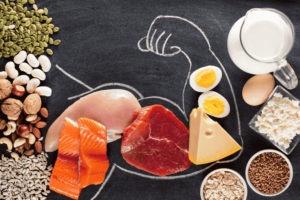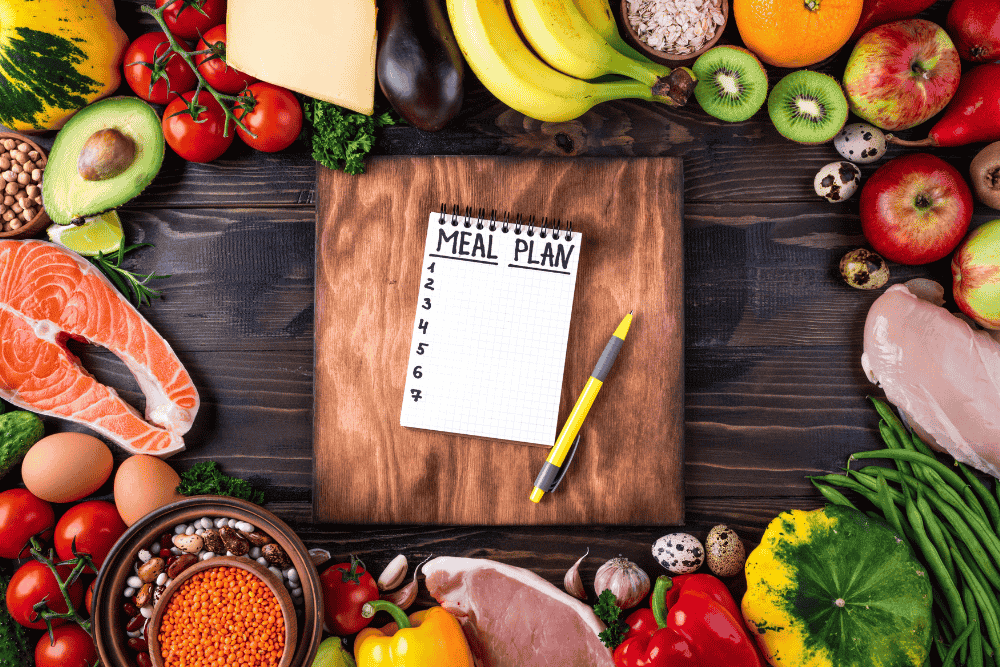

Best Bulking Diet: Top Foods to Increase Muscle Mass
Want to Build Muscle and Sculpt a Stronger Body?
If your goal is to increase muscle mass and build a strong, well-defined physique, following a bulking diet is essential. It’s not just about eating more — it’s about choosing the right nutrients to promote healthy, effective muscle growth. In this article, you’ll learn how to implement a bulking diet, the best muscle-building foods, and practical tips to help you reach your goals efficiently.
What Is a Bulking Diet?
Definition and Objectives of Bulking
Bulking is a phase in bodybuilding focused on increasing muscle mass by eating more calories than your body burns daily, with an emphasis on proteins, carbohydrates, and healthy fats. The primary goal is to gain muscle while minimizing fat gain, supported by a balanced diet and proper workout plan.
Types of Bulking: Clean vs. Dirty
- Clean bulking: Involves nutrient-dense foods like lean proteins, complex carbs, and healthy fats
- Dirty bulking: Involves high-calorie foods from any source, including saturated fats and refined sugars, often leading to excessive fat gain
For a deeper understanding of healthy nutrition, check out our article on the healthy diet guide.
Essential Nutrients in a Bulking Diet
Proteins and Their Role in Muscle Building
Protein is crucial for repairing and growing muscle fibers damaged during intense workouts. For optimal bulking results, aim for 1.6–2.2 grams of protein per kg of body weight daily.
Top protein sources:
- Lean beef
- Chicken and turkey
- Fish (salmon, tuna)
- Eggs
- Dairy products (Greek yogurt, cottage cheese)
- Legumes and nuts
Learn more in our detailed article on the benefits of protein for muscle building.
Carbohydrates: The Primary Energy Source
Carbs fuel your workouts and aid recovery. Choose complex carbs for sustained energy.
Best carb sources:
- Oats
- Brown rice
- Sweet potatoes
- Whole grains
- Fruits and vegetables
Healthy Fats: Vital for Hormones and Growth
Healthy fats help produce testosterone, a key hormone for muscle growth. Choose unsaturated fats for overall wellness.
Top sources of healthy fats:
- Avocados
- Olive oil
- Nuts and seeds
- Natural peanut butter
- Fatty fish
To balance your diet around training, explore our article on pre- and post-workout meals.
How to Calculate Calories During Bulking
To build muscle without excessive fat gain, calculate your daily calorie needs based on your activity level and training intensity.
Steps to Calculate Bulking Calories:
- Calculate BMR (Basal Metabolic Rate): Calories burned at rest
- Add activity level: To find TDEE (Total Daily Energy Expenditure)
- Add a calorie surplus: 250–500 extra calories daily to support lean muscle gain
Top Tips for Successful Bulking
✔ Eat protein- and carb-rich meals at the right times
✔ Increase calories gradually to avoid fat gain
✔ Stay well-hydrated to support muscle performance
✔ Follow a consistent resistance training program
✔ Prioritize quality sleep for recovery and growth
✔ Stick to whole foods over processed products for best results
Want to optimize your workout timing? Check out our guide on the best time to exercise for maximum results.
FAQs About the Bulking Diet
Can I bulk without supplements?
Yes — natural foods can provide everything you need. However, supplements like whey protein can make it easier to meet protein targets.
How often should I eat while bulking?
Aim for 5–6 meals per day to keep muscles fueled throughout the day.
Are fats essential during bulking?
Absolutely — healthy fats support hormone production and recovery.
How can I avoid fat gain during bulking?
Increase calories gradually, eat clean, and include moderate cardio to stay lean.
What’s the difference between bulking and cutting?
Bulking is focused on gaining muscle, while cutting aims to reduce fat while preserving muscle.
Conclusion
A proper bulking diet is essential for anyone looking to gain muscle and increase strength. By selecting the right foods, managing your calorie intake, and training consistently, you can achieve impressive results without gaining excess fat. Remember, consistency and balance are key to success during the bulking phase.


